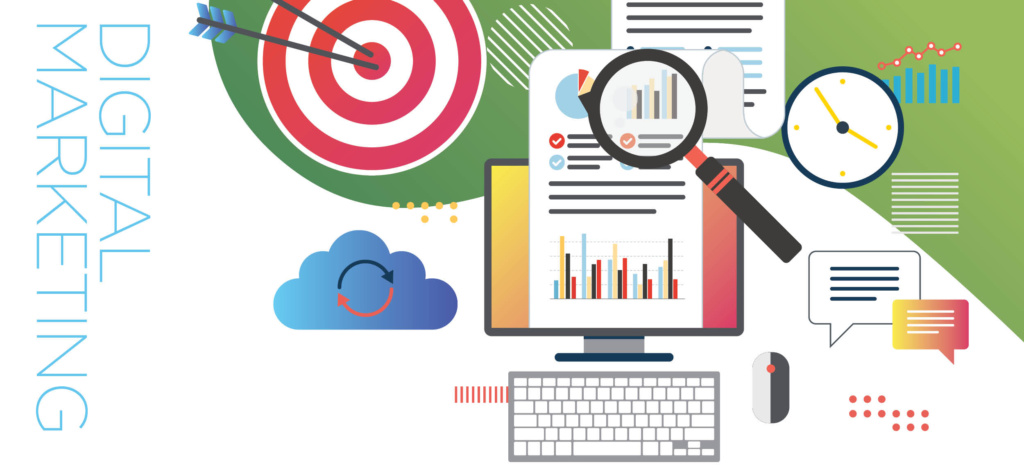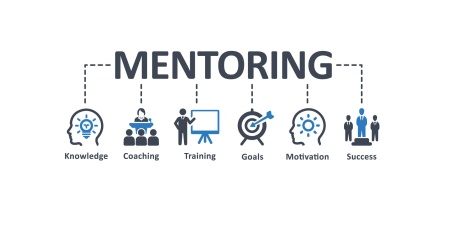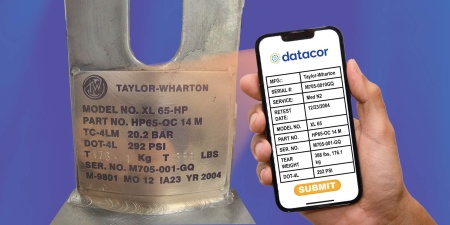While digital marketing was once new and revolutionary, it’s now mature with less opportunity to stumble into success. That means you need to have a plan if you hope to succeed.
But how does a company know where to start or if what it has in place is working? Further, what work should be performed in house and what should you outsource?
At the highest level to be successful in digital marketing you need to develop a plan to address the following:
- Your website
- Search engines (Google)
- Social media
- Video
- Email marketing
- Measurement for success (Google Analytics)
Your Website
The cost of a website project can be broken down into the selection of a content management system (software) and labor.
Picking an open source content management system has many advantages. One of the key advantages is the fact that these platforms are free. The availability of many free or inexpensive plugins (discrete software bundles that add functionality to a website), the abundance of affordable developers, and the ease with which the site can be changed are also important to note.
WordPress is the most popular open-source content management system with approximately a 60% market share. In my opinion, unless you have a unique need, you should build your website on WordPress. An advanced ecommerce website would be an example of a unique need.
The true cost of a new website includes: the labor to design or brand the site, code or assemble the pieces, and create and add content. Once your site is built, your job is not over. You should continually add fresh content and check your site’s analytics to identify opportunities for increased visitor engagement and conversion.
Perform In-House
During the initial build of the website, your internal team should be working on content creation. This is especially true if your products or services are technical or complex.
After launch, your staff should make routine updates including adding or deleting product or service information, maintaining your events calendar, writing and posting blogs and case studies and adding news.
Consider Outsourcing
Website design and development should be outsourced. Adding functionality to the site typically requires the involvement of a developer, even in cases where a plugin is available.
Websites require maintenance to keep things running smoothly. This includes installing platform and security updates. Outsource this work.
Search Engines
Search engines connect people that have a need to a source of information. Today, users of search engines can either satisfy their information needs right on the search engine, without navigating to a website, or they can leave Google in favor of a website as one might traditionally expect.
Local Listings
Your Google My Business page or local listing can appear (under the map) when Google believes that the query can best be addressed by a local provider. Google My Business provides searchers with your address and ability to retrieve driving directions, phone number (click to call on a mobile phone), a description of your business, a star rating and reviews, and of course a link to your website.
Organic Search – SEO
At a high level, SEO is about creating high-quality mobile-friendly content on a fast loading website and sending consistent signals to Google about the content’s meaning.
Taking the time to fully describe a topic with unique content is a sign of quality. To do this, think about the questions people might ask about that product or service and include answers to those questions within your content.
Beyond visible content there is information or signals that are important from an SEO perspective. These include the page title (title tag), description tag (describes the content on that page), schema markup (code that allows the search engines to understand what your content represents – i.e. a product, event, review, etc.), and mentions or links to your website from other websites.
Paid Search
On Google, paid listings appear above organic listings so they attract more eyeballs. While many Google users still prefer to click on an organic listing, that mindset is changing in part because paid results dominate mobile screens and because Google rewards ad programs that deliver the best content.
Google Ads, Google’s advertising program, is made up of ads on Google, YouTube and Google’s display network (ads appearing on other websites including retargeting ads).
With paid search, you pay when a searcher clicks on your ad. The amount you pay can be controlled by adjusting your bid and adjusting your daily budget. Another factor is a quality score assigned to your program by Google. Quality Score is determined by an assessment of the relevance of your ad and landing page to the search term. Google is protective of its users and if you run a sloppy Google Ads program you are going to have to pay more. If your program is a real mess, Google will stop showing your ads altogether.
Perform In-House
SEO: The person in your organization responsible to post new content should learn enough about SEO to optimize blog posts and other forms of new content.
Local Search: Your team should solicit and respond to customer reviews from happy customers as a way to increase your exposure in the local search results and reach out to all customers to show you care.
Consider Outsourcing
SEO: Developing a sitewide SEO plan is a task that takes experience and, therefore, I’d suggest leaving it to a pro. Likewise, troubleshooting technical SEO issues and securing off page citations and links are best outsourced.
Local Search: It’s not a bad idea, although not imperative, to outsource the creation of your Google My Business page. There are a few tricks and the need for high quality images.
Paid Search: Although I’ve seen countless companies try to manage their paid search program internally, they almost always waste more money than the cost to have a trained and certified manager look after the program. For that reason, you should outsource management of your paid search program.
Social Media
Social media allows businesses to get the attention of potential customers, increase awareness of their brands and ultimately boost leads or sales. While Google is a better platform to attract prospects with an immediate need, Facebook, Instagram, LinkedIn, Pinterest and Twitter play a role too. Facebook of course is the social media king.
Unless you have deep pockets, I’d suggest that businesses in the gas and welding space limit their social media efforts to Facebook. If you were a restaurant or selling largely consumer goods, then this approach would change to include additional platforms.
Facebook is a great platform to push information about a training event, display your commitment to the community, promote a special or attract new talent. Like Google, traffic on social platforms requires ad dollars. On Facebook this means boosted posts or ads. Here’s a link to more information about advertising on Facebook (shorturl.at/qxE59) for those that are interested.
Perform In-House
Managing your Facebook program in house is certainly an option. However, like paid search you can expect better results by having a trained person manage your page.
Managing your page includes establishing a social media calendar (planning what you’ll be posting over the next month) and responding to feedback and fan engagement.
A middle ground between outsourcing and in housing all social media would be to outsource posting and advertising and in-house customer engagement (responding to reviews, likes, etc.).
Consider Outsourcing
There are certain aspects of social media that, if you choose to engage in them, should be outsourced. These include significant advertising efforts and developing and managing campaigns and contents.
Video
No discussion of digital marketing is complete without mentioning video. Video is massively popular and the increasing use of mobile devices to consume this content is at the heart of video’s popularity. As the world’s second largest search engine, YouTube is both a destination for users looking for content and a platform from which you can easily embed video into your website. Like every other platform, traffic can be organic or paid.
Companies should create a YouTube channel and populate that channel with fresh and interesting content. Your best professionally created content should be reserved for your “about” video or videos demonstrating a core capability. Good video, potentially even video shot on a mobile phone, can be used to document an event (training session) or demonstrate use of a product.
Perform In-House
Buy a decent camera and train a staff member to use it. iMovie or other base level video editing software can be used to polish these videos.
Outsource
Professionally shot and edited video is an important company asset. This effort includes pre-production (storyboarding and scripting), production (shooting) and postproduction (editing, voice-over, and adding music). Outsource your most important video projects.
Email marketing is, in my opinion, the most misunderstood and underutilized form of digital marketing. From a complexity standpoint, email marketing can include blasting the same message to your entire list, to segmenting your list by vertical or area of interest and sending unique content to those lists.
And, there’s a higher level of sophistication – marketing automation. Marketing automation involves the creation of logical workflows (a series of 5-8 emails about a particular subject) triggered by the recipient’s engagement with your content (visit to your website, clicking on a link in your email or filling out a form).
Regardless of the approach you take, email marketing is both affordable and effective.
Perform In-House
If you are only publishing a monthly newsletter and you have a capable internal staff, then by all means, do this in house.
Consider Outsourcing
If you have the bandwidth to take on a more complex and potentially highly rewarding email marketing effort like a segmented campaign or building out a marketing automation program, you’ll need help. As you increase the complexity of your program, you would be advised to outsource this work.
Measurement
Measurement is at the heart of digital marketing and it’s the ability to test, measure and adjust that separates the winners from the losers. Every platform – Google, Facebook, YouTube, etc. – has a measurement tool and as you embrace any of these platforms, you should learn that tool.
That said, Google Analytics will by far be your most important measurement tool. Google Analytics provides you with data about the performance of your website. More important than any specific individual metric is the ability to slice and dice the data. For example, let’s say that you have a handful of locations across NY state, it would be important to know which traffic source from that region, sent the most and highest converting traffic to your website.
Here’s a link to Google’s “Get started with analytics” page (shorturl.at/ozH68).
Perform In-House
The person in your organization overseeing digital marketing should be familiar with the various measurement tools associated with the platforms involved in your program. Company leadership should review high-level reports at least monthly and receive a deep dive analysis quarterly.
Consider Outsourcing
If you choose to participate in digital marketing, then you’ll need to protect your investment; and that means collecting and analyzing important data. After 16 years in this business, I’ve never seen an internal team capable of doing this effectively. Therefore, while I know this is a big pill to swallow, I’d suggest outsourcing your analytics efforts.









